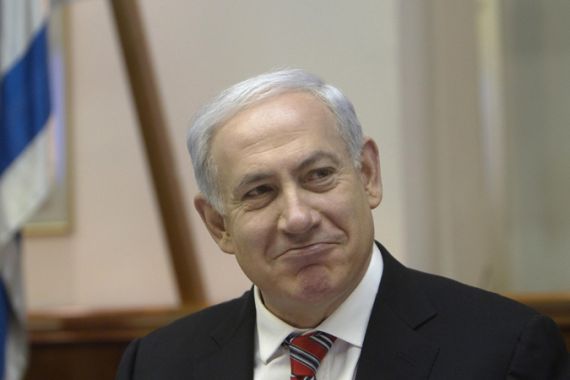Israel PM criticised over flotilla assault
Government report criticises Netanyahu decision-making in 2010 naval raid on Gaza-bound flotilla.

Israel’s state watchdog has criticised Binyamin Netanyahu, the Israeli prime minister, over his handling of a 2010 military raid on a Gaza-bound flotilla of aid ships which left nine Turks dead, including one Turkish-American.
“In the process of decision making, which was led by the prime minister and under his responsibility, over the handling of the (flotilla), there were significant shortcomings,” said a report published on Wednesday by State Comptroller Micha Lindenstrauss.
The 153-page report criticised the decision-making process which led to the botched pre-dawn raid on a six-ship flotilla on May 31, 2010, which was headed by the Mavi Marmara, a Turkish ferry carrying more than 600 people.
The bloody raid triggered a diplomatic crisis between once-close allies Israel and Turkey, with Ankara demanding a formal Israeli apology and compensation for the families of the victims.
Netanyahu, the report said, had not held a formal discussion with top ministers about the flotilla, and had only held separate talks on the issue with Defence Minister Ehud Barak and Foreign Minister Avigdor Lieberman.
“The prime minister did not order integrative staff work regarding the necessary policy to deal with the flotilla, instead there were personal, separate meetings, between the prime minister and the defence minister, and between the prime minister and the foreign minister, which were not documented or summarised, and there was no discussion between the prime minister and any group of ministers,” the report said.
“The only discussion that took place on the issue was in the Forum of Seven just before the flotilla arrived, an ‘ad-hoc’ discussion without any preparation,” it said, referring to Netanyahu’s inner forum of senior ministers, which now counts nine members.
“The process of decision-making was done without orderly, agreed-upon, coordinated and documented staff work, despite the recognition of the senior political echelon and (Israeli army) chiefs, intelligence bodies and the National Security Council on the different nature of the Turkish flotilla compared to previous flotillas,” it said.